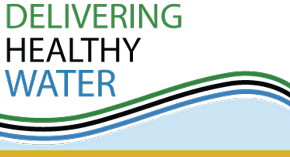Economics and information
Download the Economics and Information Briefing Paper
The economic implications of moving from culture based approaches to molecular analytical methods are wide-ranging. For those involved in the day-to-day management of bathing water quality the direct cost implications are significant. Molecular methods are more expensive than culture-based approaches to microbial enumeration. There are immediate costs associated with capital outlay for new technology, more expensive consumables and costs associated with training staff for the specialized skills required. There are also important considerations surrounding the infrastructure that may be needed to support any transition in methodologies in order to reduce logistical issues linked to sample transit times. Automation and economies of scale could possibly reduce costs in the future, but this would not apply to single samples collected as part of pollution incident investigations.
Bathing water quality information should be accessible to members of the public in a timely and accessible format. In order for signs and other information to be effective in informing stakeholders and shaping beach use it is necessary to understand the value that beach users place on risk information.
We also need to know how a transition to new methods such as qPCRmay be used to provide a more meaningful statement of risk to beach users. The posting of risk information may have impacts on local economies as well as the water users and there is a need to explore how these impacts could take shape at large beach resorts and smaller designated bathing waters.
Finally we must consider how best to communicate and interpret complex water quality results and deliver them to the public in an appropriate form. We need to know what type of information beach users require, how quickly they want it, how best it is distributed and whether a transition in methods helps meet these needs.
The second Briefing Paper from the Delivering Healthy Water (DHW) project turns to the economic implications of such a move and the complexities of providing appropriate and timely public information on bathing water quality. Any change in a standard methodology and the tools and techniques used to inform regulatory standards requires careful consideration of the social and economic implications of such a transition in addition to the scientific challenges and uncertainties.
Delivering Healthy Water workshop 3
| Presenter | Title | Workshop |
| David Oliver (University of Stirling) | Delivering Healthy Water: building the science-policy interface to protect bathing water quality | 3 |
| Nick Hanley (University of Stirling) | Economic valuation of water quality improvements: a quick tour of methods available | 3 |
| Sue Chilton (Newcastle University) | Valuing Risk Reductions to Human Health | 3 |
| Sharyl Rabinovici (Mills College, California) | Integrating Valuations of the Intangible & Stakeholder Participation into Assessment of Beach Management Alternatives | 3 |
| Julie Hewitt (USEPA) | The Net Benefits of Rapid Test Methods at U.S. Coastal Beaches | 3 |
| Klaus Glenk (SRUC) | Valuing risk of non-delivery of environmental outcomes | 3 |
| Andy Vinten (James Hutton Institute) | Testing the proportionality principle for pollution mitigation in the Irvine catchment, and at national scale | 3 |
| Dugald Tinch (University of Stirling) | Valuation of the upcoming revisions to the Bathing Water Directive | 3 |
| Sabina Shaikh (University of Chicago) | The Value of Beach Visits and the Effect of Swim Bans in Chicago | 3 |
| Alistair McVittie (SRUC) | How information on different water quality measures can influence values | 3 |
| Julie Kinzelman (City of Racine health Dept) | Economic implications of beach management | Additional resource |
A comprehensive report from the workshop is available to download HERE.
A briefing paper containing the major findings and recommendations in relation to the economic arguments and stakeholder information is available to download HERE

